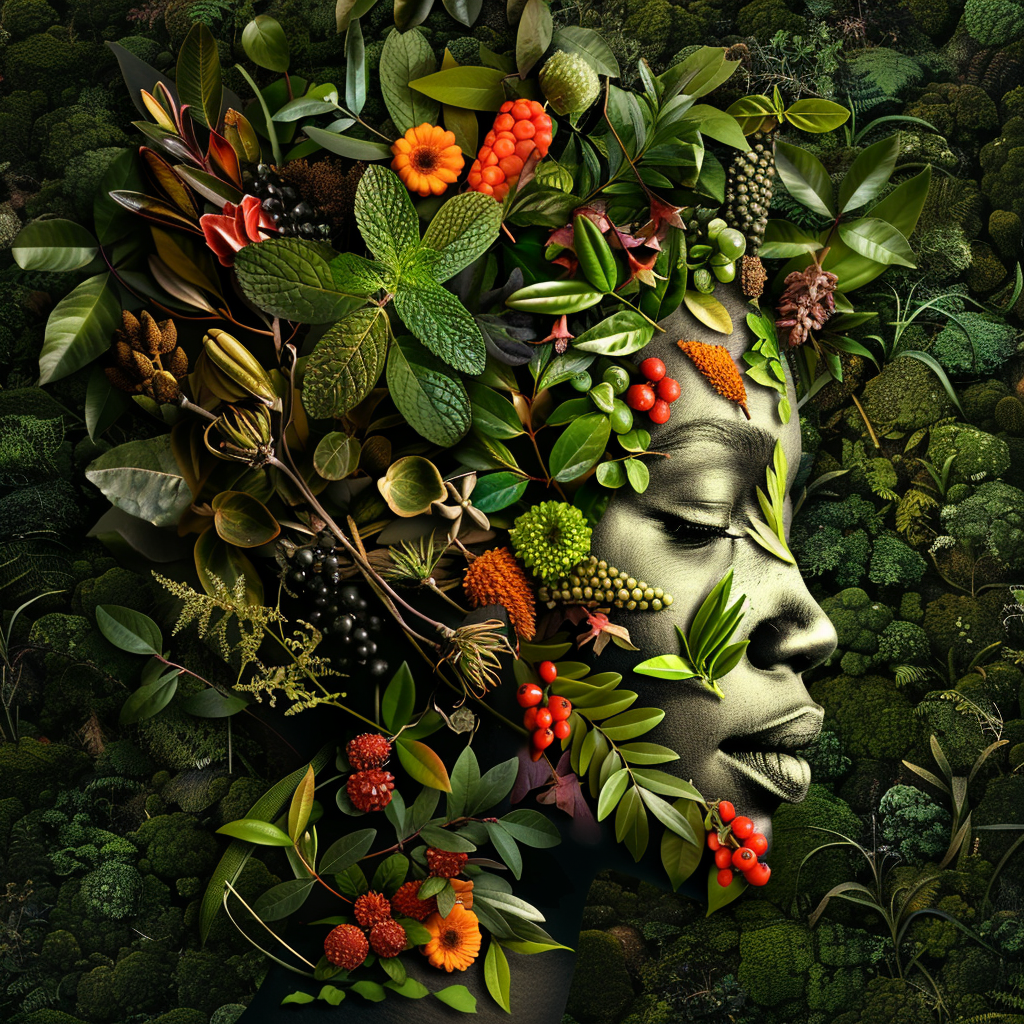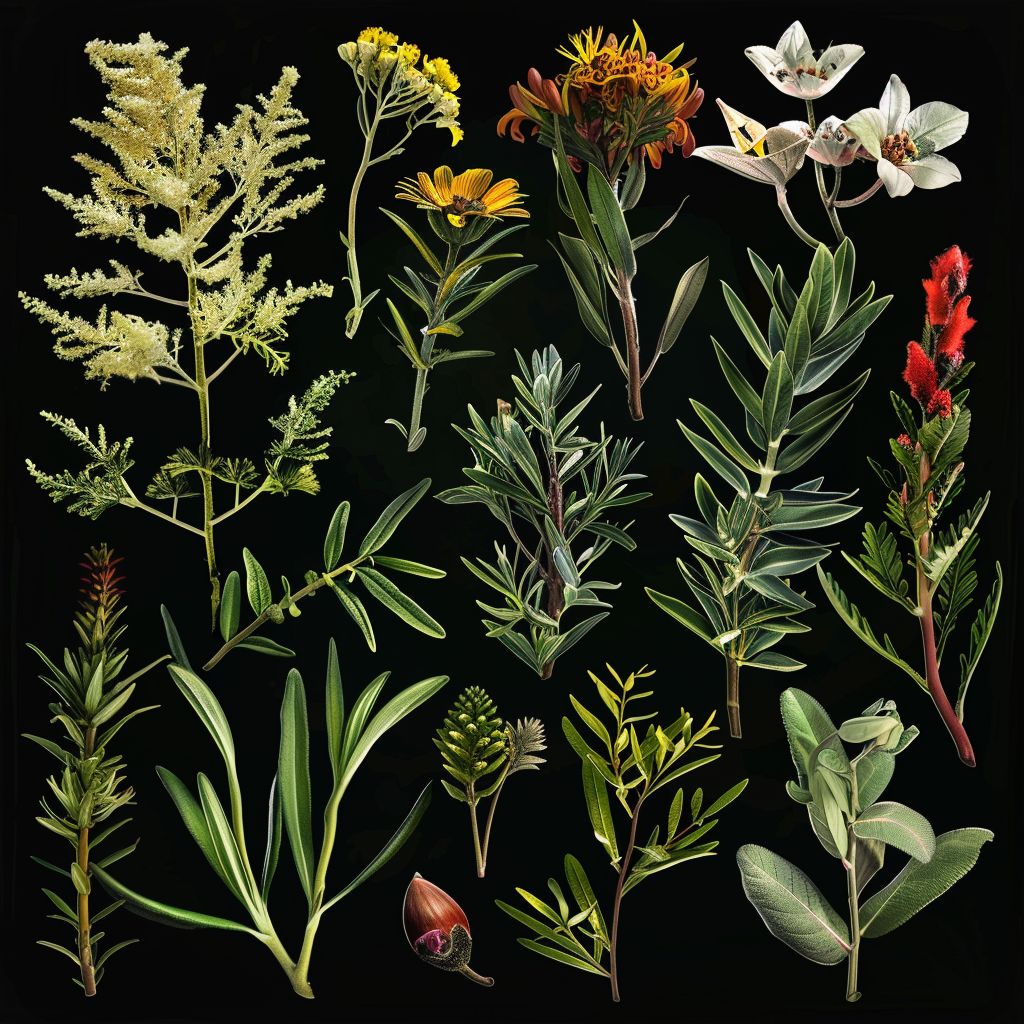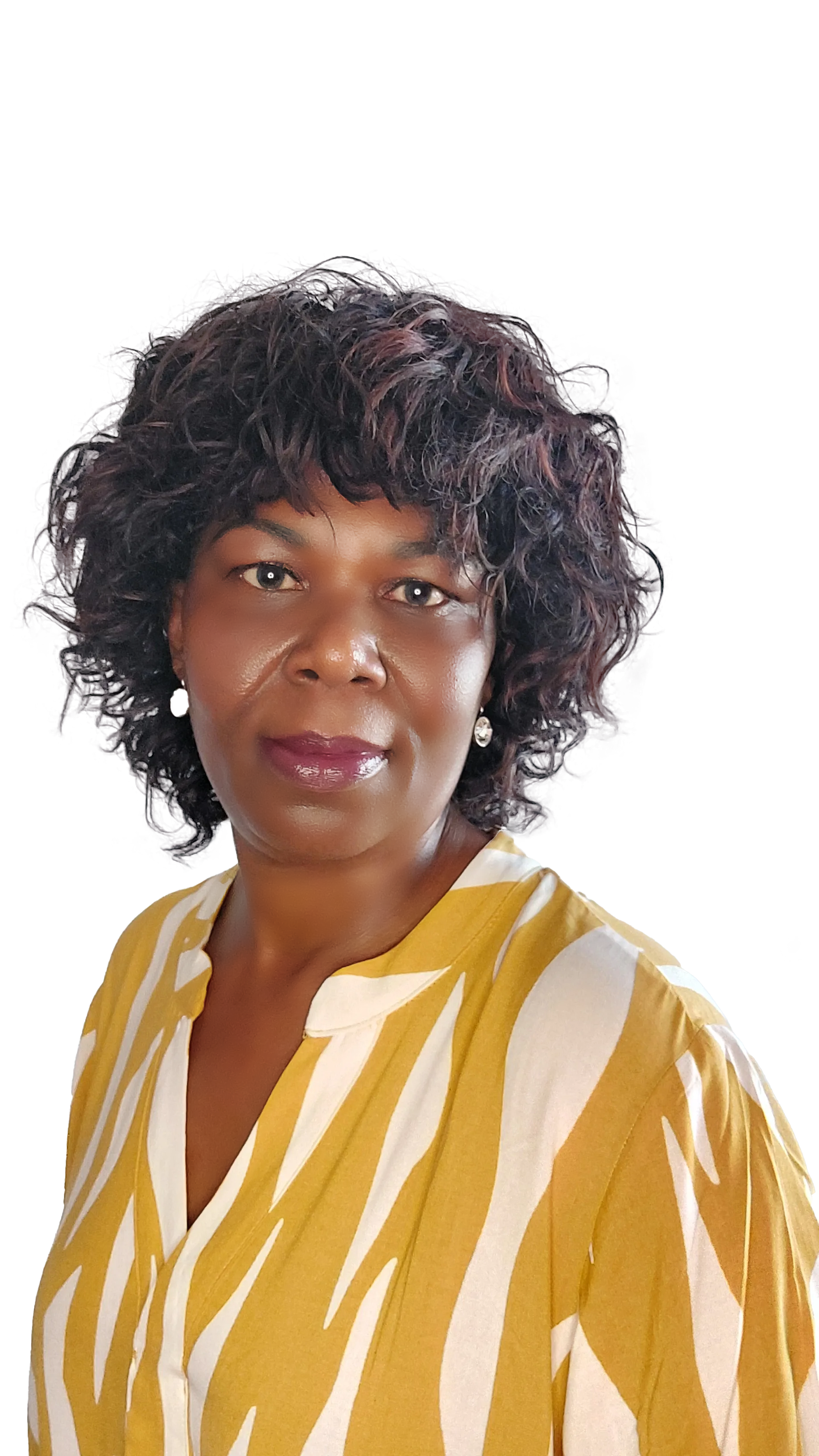
In a world where modern medicine dominates our approach to health and wellness, the rich traditions of herbal medicine, particularly those from Africa, offer a refreshing perspective on healing and well-being. Traditional African healing practices and herbal medicine are deeply rooted in the cultural heritage of the continent, providing not just physical remedies but also spiritual and communal health benefits. Let’s explore the powerful legacy of African medicinal plants, the wisdom of traditional African healers, and the holistic approach of Afrocentric herbalism.
African Medicinal Plants: Nature’s Pharmacy
African medicinal plants are a cornerstone of traditional African healthcare and have been used for thousands of years to treat various ailments. These plants are not just tools for healing but are also part of the cultural fabric of many African communities. For example, the African moringa, often called the “miracle tree,” is renowned for its nutritional and medicinal properties, including vitamins that boost the immune system and anti-inflammatory compounds.
Another notable plant is rooibos, native to South Africa, widely consumed for its potential benefits in managing allergies and stomach pains. Hoodia (Hoodia gordonii) Traditionally used by the San people of Southern Africa as an appetite suppressant during long hunts. These plants are a testament to the continent’s rich biodiversity and the traditional knowledge that harnesses this flora for health and wellness.
Traditional African Healers: Guardians of Ancestral Wisdom
Traditional African healers, often referred to as sangomas or inyangas in parts of Southern Africa, play a crucial role in their communities. These healers are not just experts in herbal medicine; they are also custodians of cultural and spiritual traditions. Their approach to healing is holistic, addressing the physical, emotional, and spiritual needs of their patients.
Healers use a variety of methods to diagnose and treat illnesses, including divination, spiritual communication, and herbal remedies. The relationship between a healer and their community is built on trust and a deep understanding of the interconnectedness of life and health.
Afrocentric Herbalism: Empowering Communities
Afrocentric herbalism is about more than just using African plants for health; it’s about embracing a system of healing that is rooted in African cultural identities and traditions. This form of herbalism promotes empowerment by reconnecting individuals with their ancestral heritage and providing a means of self-care that respects their cultural background.
In Afrocentric herbalism, the use of traditional herbs is combined with a respect for the cultural narratives that accompany these practices. It offers an alternative to the dominant Western medical practices, emphasizing community and natural balance. By adopting these practices, people not only improve their own health but also contribute to the preservation and revitalization of ancient knowledge.
The Global Impact of Traditional African Medicine
The influence of traditional African medicine extends beyond the continent. As the world becomes more interconnected, the interest in alternative and holistic forms of medicine has grown. African herbalism offers valuable insights and practices that can benefit global health. Through the sharing of knowledge and cultural exchange, these traditional practices can play a part in creating more diverse and inclusive approaches to health and wellness worldwide.
Organizations like the World Health Organization now recognize the importance of integrating traditional medicine into global health systems. This recognition helps preserve these traditions and ensures that they are not lost in the tide of modernization but are instead respected and integrated into contemporary life.
The wisdom surrounding these plants goes beyond simply identifying their uses. Traditional healers understand the delicate balance between plants, the human body, and the surrounding environment.
Traditional African Healers: Guardians of Holistic Health

Traditional African healers are not just experts in herbal remedies. They play a vital role in their communities as spiritual guides, counsellors, and custodians of ancestral knowledge. Their approach to healing is holistic, recognizing the interconnectedness of mind, body, and spirit. A traditional healer’s role may involve:
- Divination: Seeking guidance from ancestral spirits to identify the root cause of illness.
- Herbal Remedies: Prescribing customized herbal formulas tailored to the individual’s specific needs.
- Rituals and Ceremonies: Performing rituals to promote healing, cleanse negative energies, and restore balance.
Afrocentric Herbalism: Reclaiming Ancestral Wisdom
Afrocentric herbalism draws inspiration from the rich healing traditions of the African diaspora. It emphasizes the importance of cultural connection and ancestral knowledge in promoting health and well-being. Afrocentric herbalism offers a way to:
- Decolonize Wellness: Challenge dominant Western narratives of health and reclaim traditional healing practices rooted in African wisdom.
- Nurture Cultural Identity: Celebrate and preserve African healing traditions, strengthening ties to ancestral knowledge and fostering cultural pride.
- Promote Holistic Health: Embrace a comprehensive approach to wellness that addresses physical, emotional, and spiritual needs.
Embracing Africa’s Healing Heritage for Modern Wellness

The ancient wisdom of African herbal medicine holds immense value for our modern world. By learning from traditional healing practices, we can:
- Discover Natural Remedies: Explore the potential of African medicinal plants as an alternative or complementary form of healthcare.
- Adopt a Holistic Approach: Understand the importance of addressing all aspects of well-being, including physical, emotional, and spiritual health.
- Support Sustainable Practices: Recognize the need to protect Africa’s biodiversity and support ethical sourcing of medicinal plants.
- Honor Cultural Heritage: Acknowledge and respect the rich knowledge systems of traditional African healers.
If you’re seeking a deeper connection to nature, a more holistic approach to health, and a way to honor your cultural heritage, exploring African herbal medicine and healing traditions could be a transformative journey. Let the wisdom of Africa guide you towards greater well-being!
traditional African healing practices and herbal medicine offer a unique and holistic approach to health that is deeply intertwined with the cultural and spiritual life of African communities. By embracing these traditions, we not only help preserve an invaluable aspect of African heritage but also gain access to a form of wellness that is enriched with centuries of wisdom. The future of global health could benefit significantly from the inclusion and respect of such diverse and rich healing practices. To learn more about Africa medicinal plants, click here.


